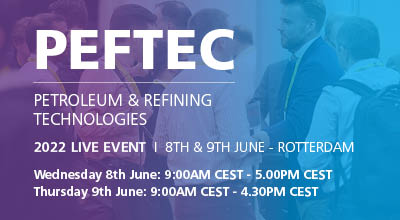| Abstract Title: | Robust TOC / TNb analysis for process effluent, cooling water and brine analysis in petro chemistry |
| Abstract Type: | Poster |
| Session Choice: | Molecular and Elemental Spectrosopy |
| Presenter Name: | Mr Bernd Bletzinger |
| Co-authors: | Dr Angela Groebel Dr Christian Koch Dr Stefan Jeziersky |
| Company/Organisation: | Analytik Jena AG |
| Country: | Germany |
Abstract Information :
Refineries and petrochemical industry generate large volumes of waste water and process effluents that must be treated before it can be reused or released into natural waterways. According to the European Industrial Emissions Directive (IED) for direct waste water discharges from the refining of mineral oil and gas, Best Reference Techniques (BREF / BAT) have to be implemented in the EU. Among other parameters total organic carbon (TOC) and the total bound nitrogen (TNb) content has to be monitored on a daily base, as these contaminants lead to eutrophication of surface water recourses, endangering aquatic life and ground water supplies. In the EU papers a clear preference of the parameter TOC instead of COD is given, because TOC determination does not rely on the use of very toxic compounds and does not produce hazardous waste. However, effluents from refining processes are representing difficult samples for TOC/TNb analyzers, since tubing and valve technique delivering sample into the combustion tube are prone to carry-over issues. Septum-free direct injection technology as provided by Analytik Jena multi N/C 2100S opens-up a way out of this issue. A by-product of the crude oil desalting process is water of high salt concentrations so-called brine and often sold into other industries as a starting material of production. One of the quality criteria for the further use of brine is its hydrocarbon content and TOC concentrations are to be provided. Optimized combustion temperatures and construction of the combustion tube combined with special filling materials proved to deliver reliable analysis results, improve long-term stability and prolong component lifetimes significantly. Corrosion control by TOC monitoring of boiler feed and cooling water is a different challenge of trace and ultra-trace TOC measurements in petrochemical industries. A convincing management of risks like sample contamination, TOC system blanks, insufficient sensitivity or poor reproducibility must be in place. UV wet chemical digestion by multi NC UV HS utilizing a high power long life UV reactor offers a solution with lowest detection limits, needless oxidation reagents and drastically reduces cost of ownership.

